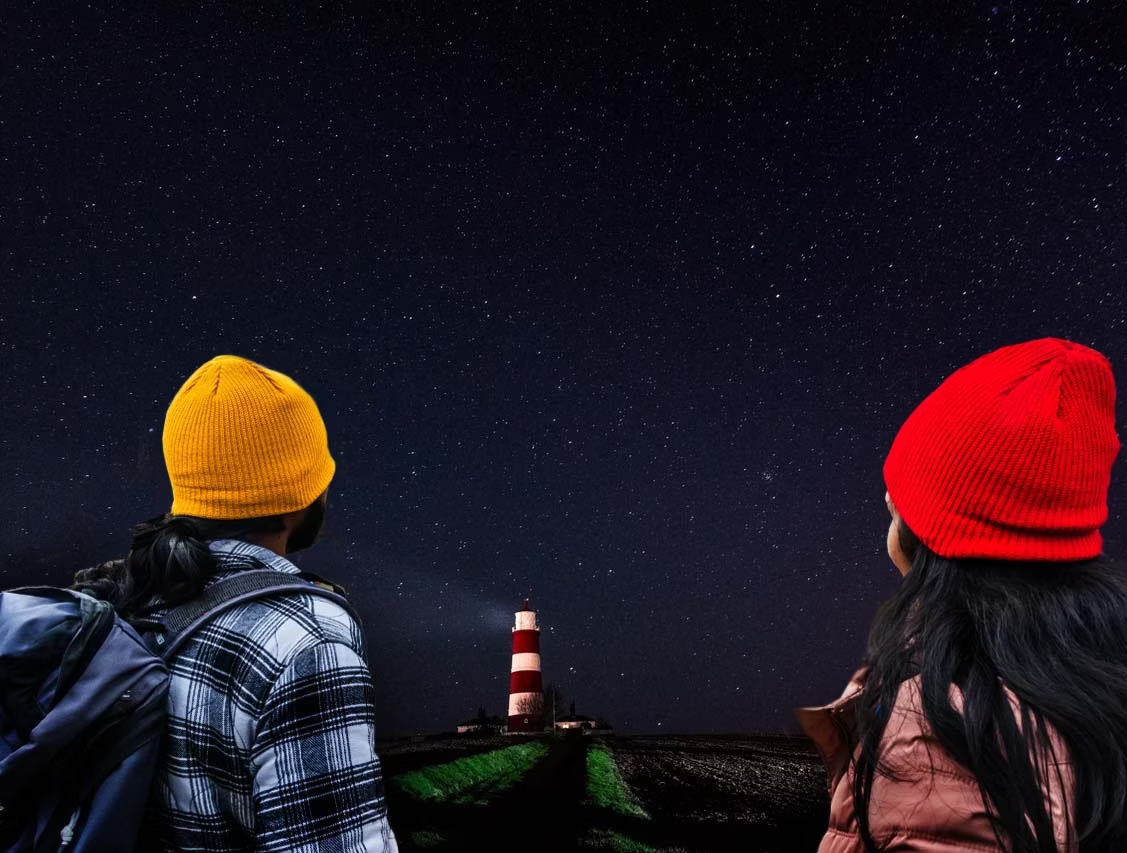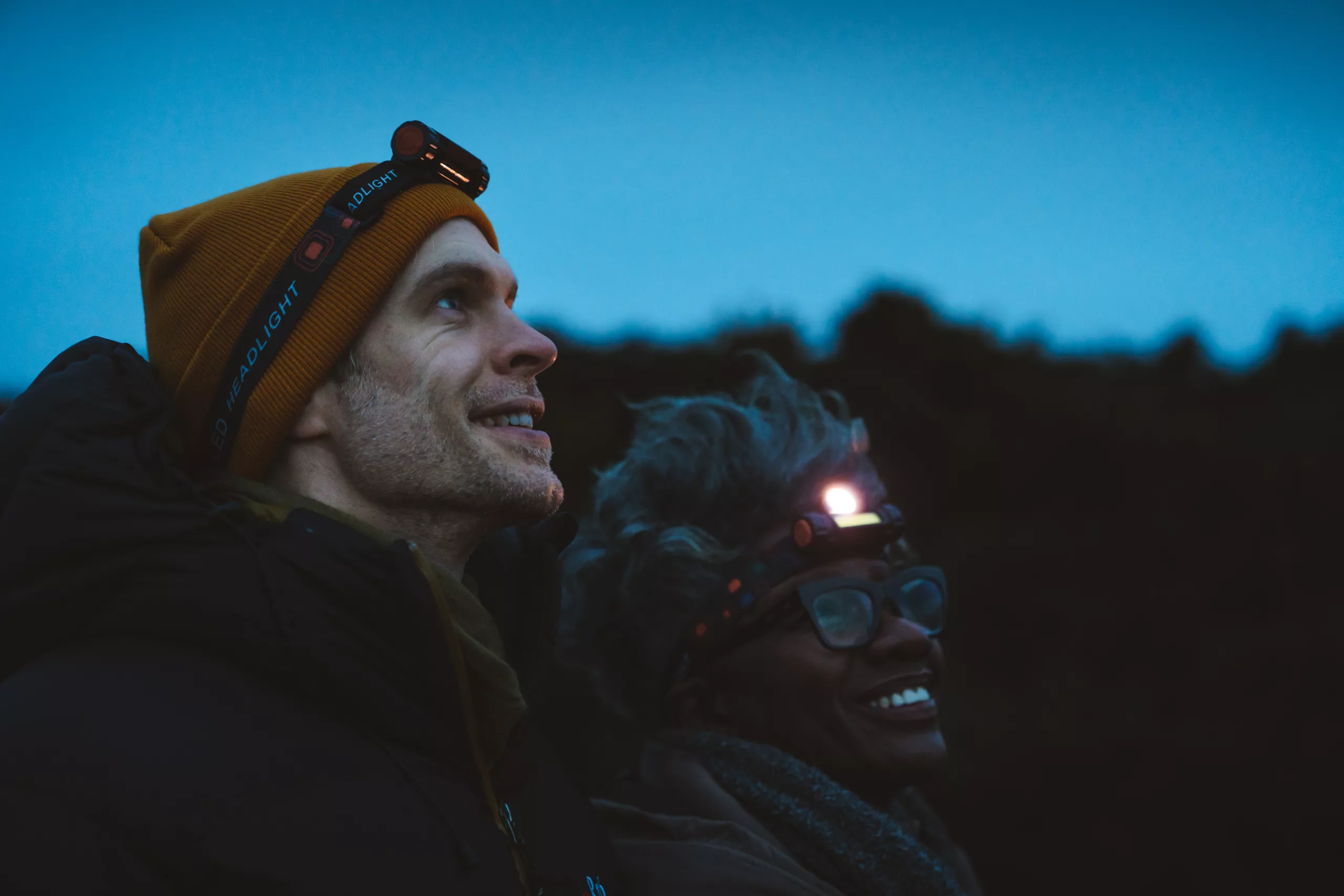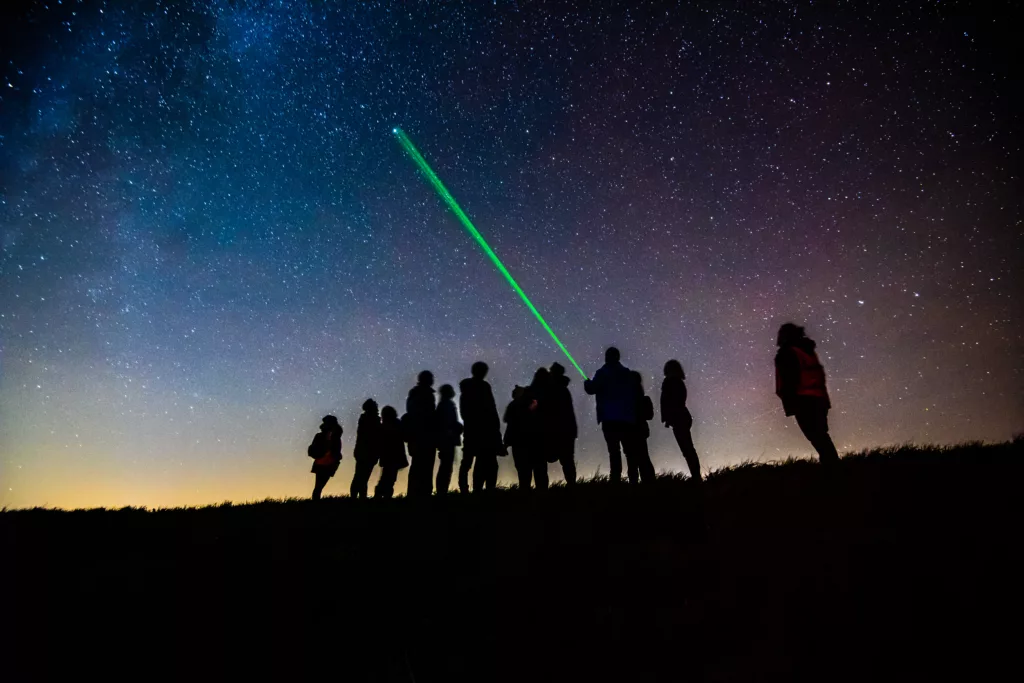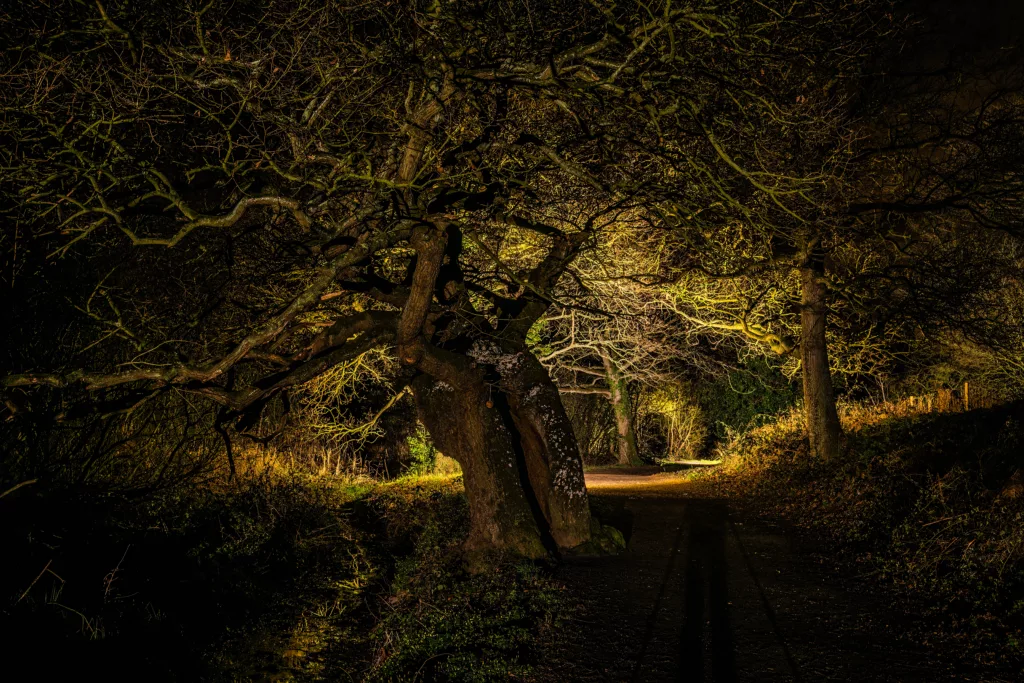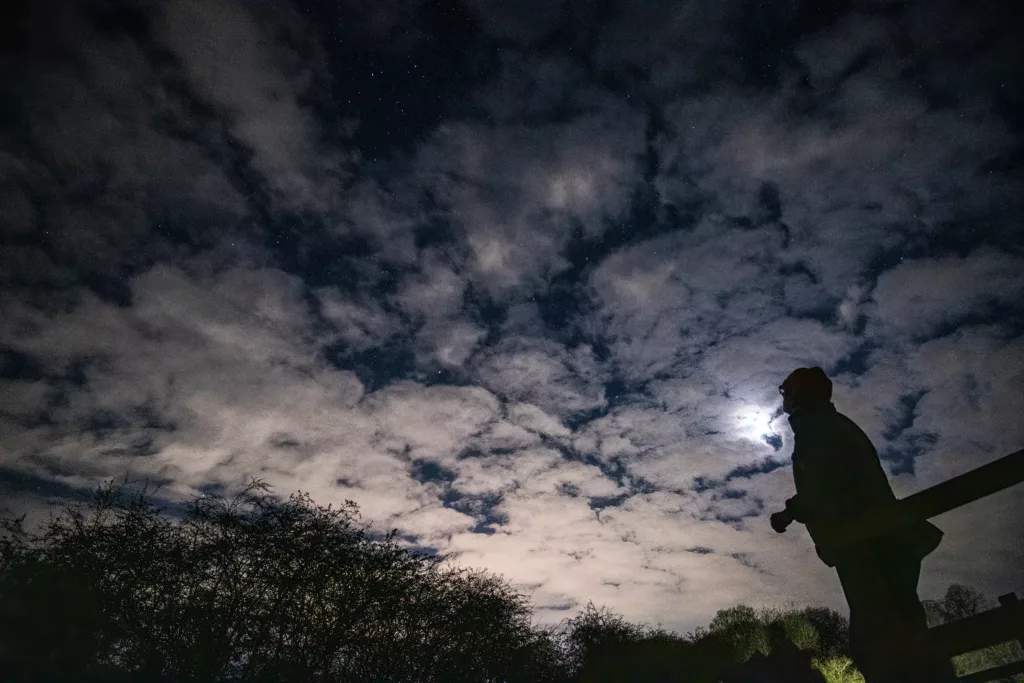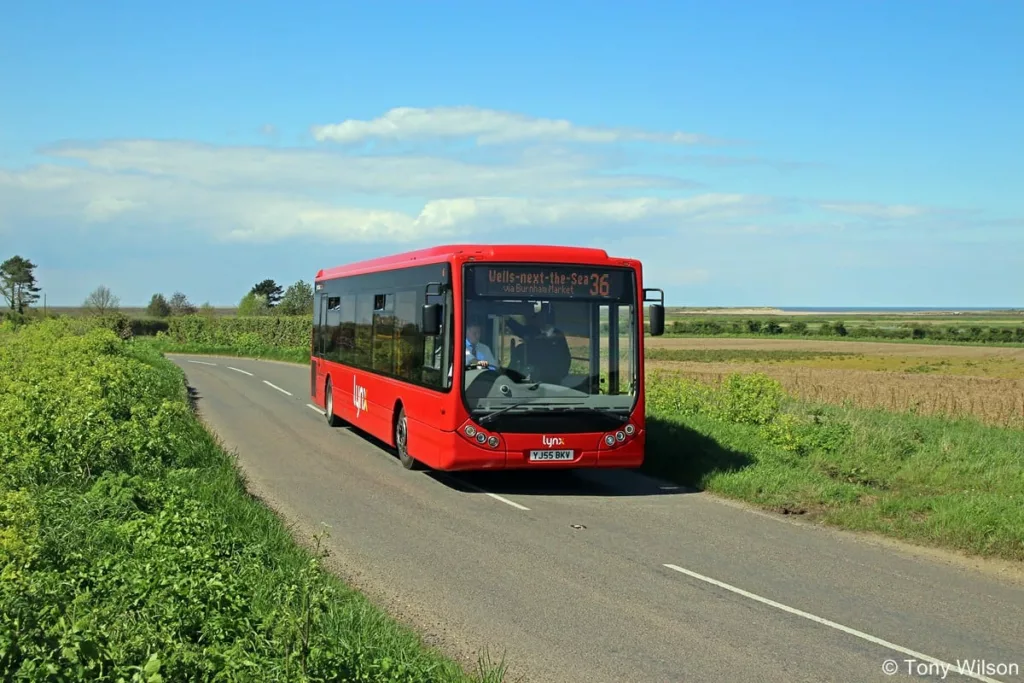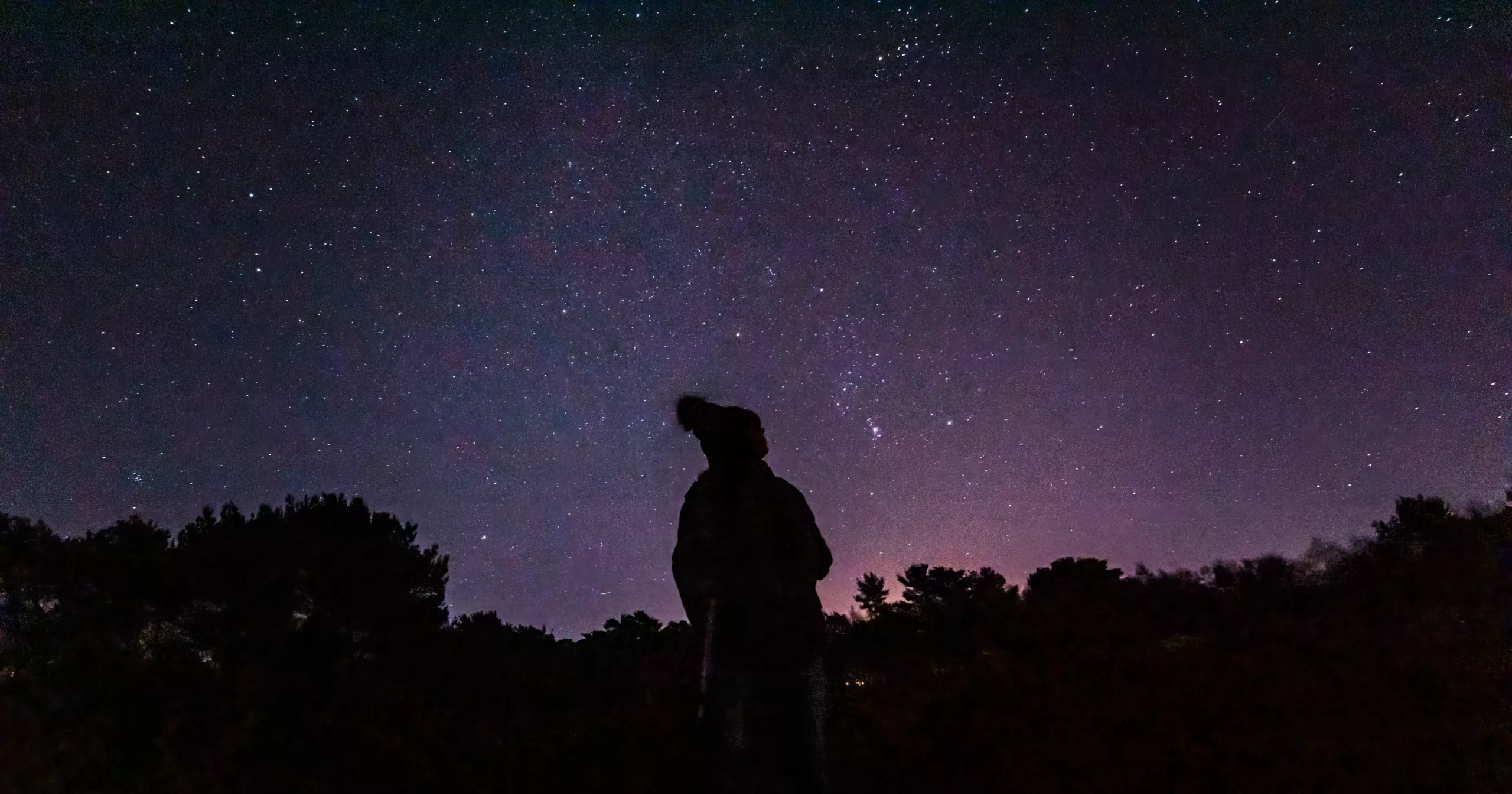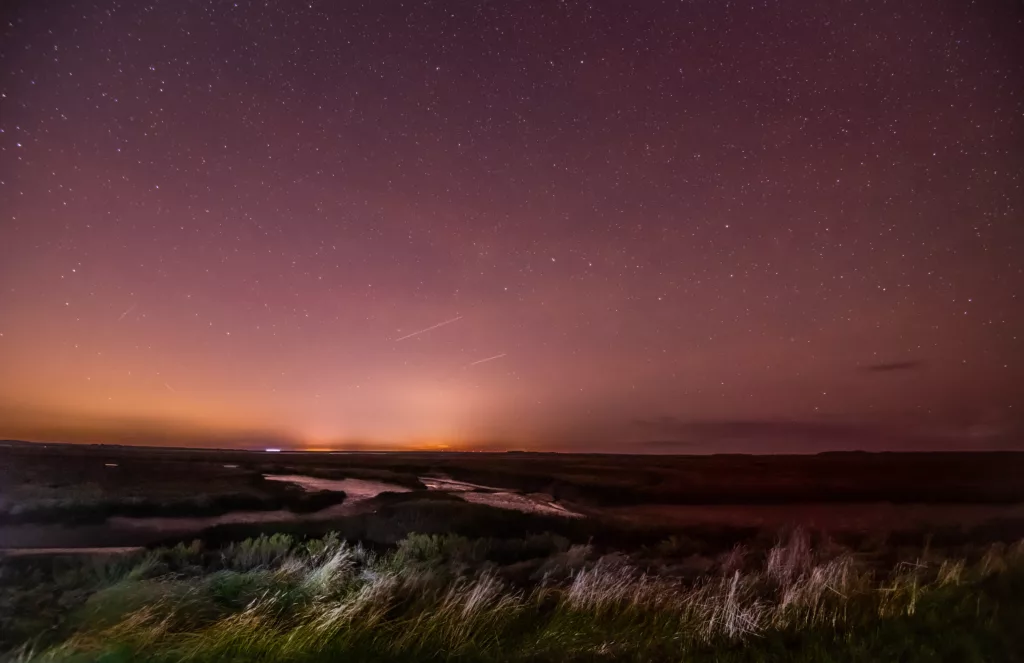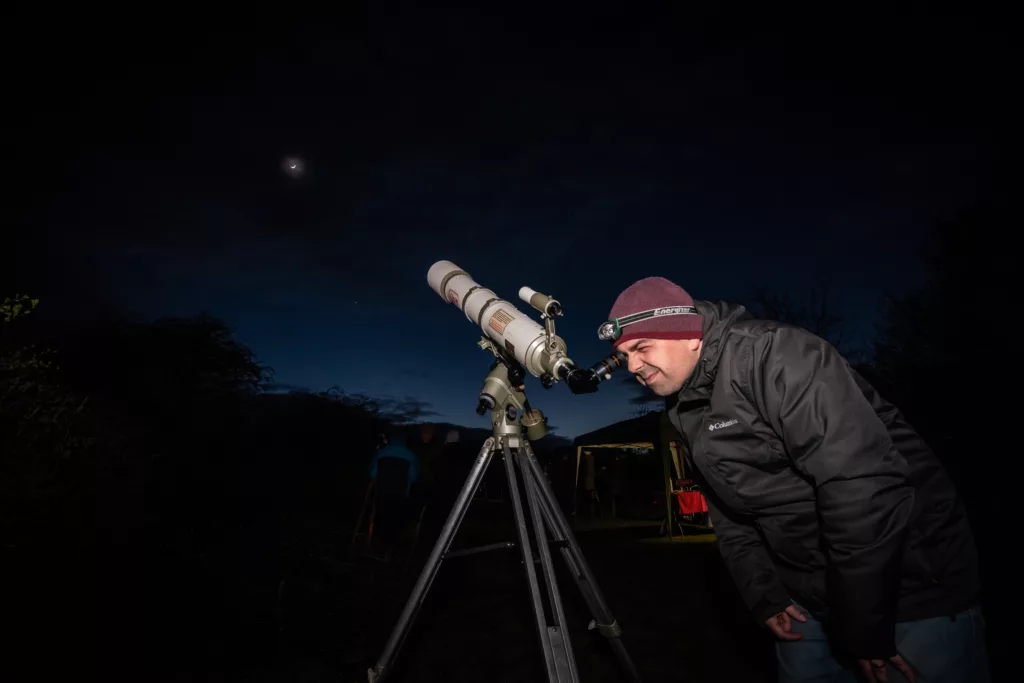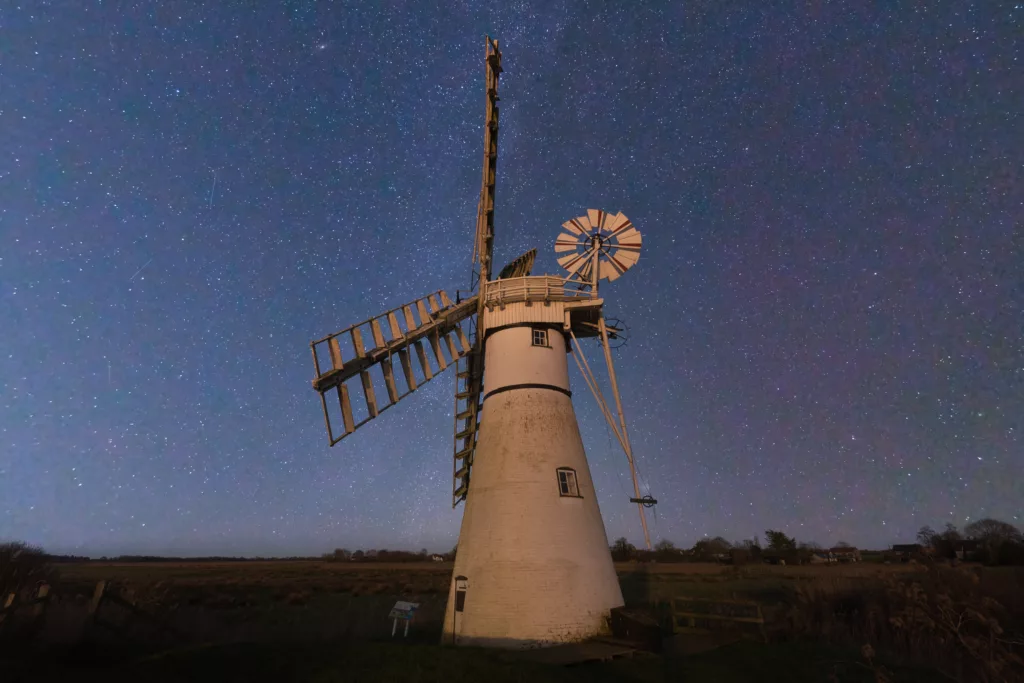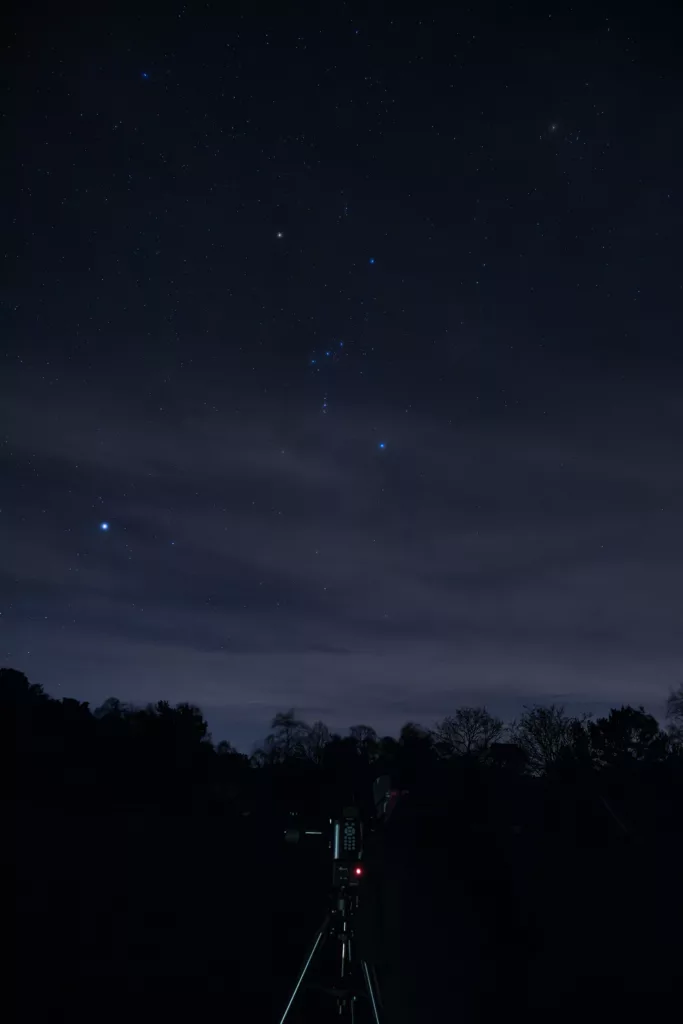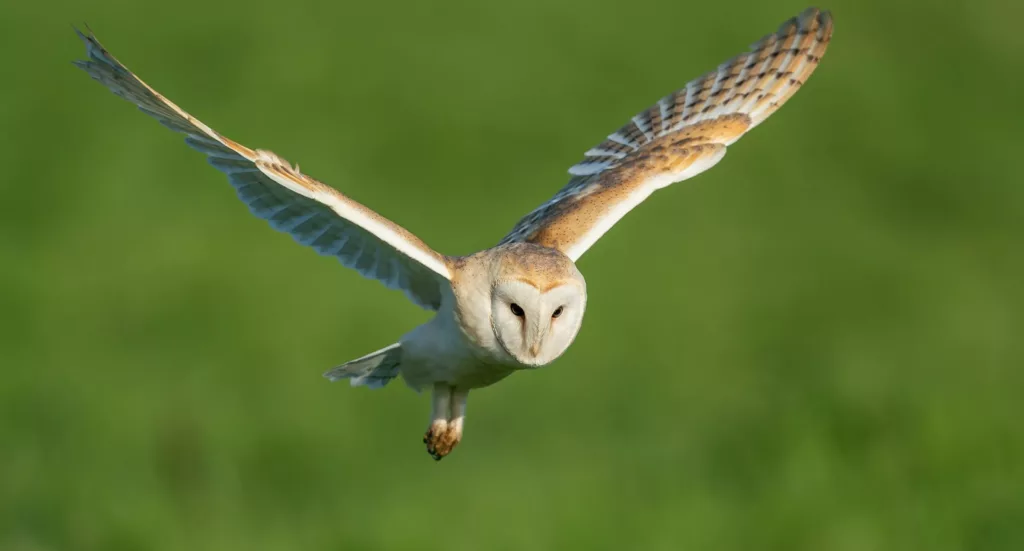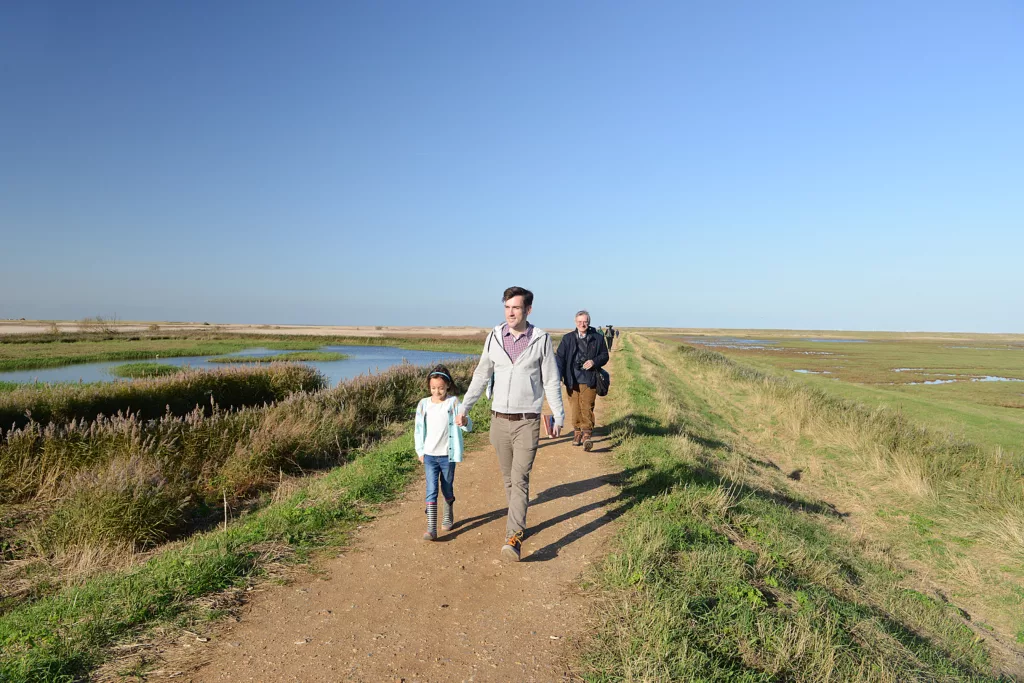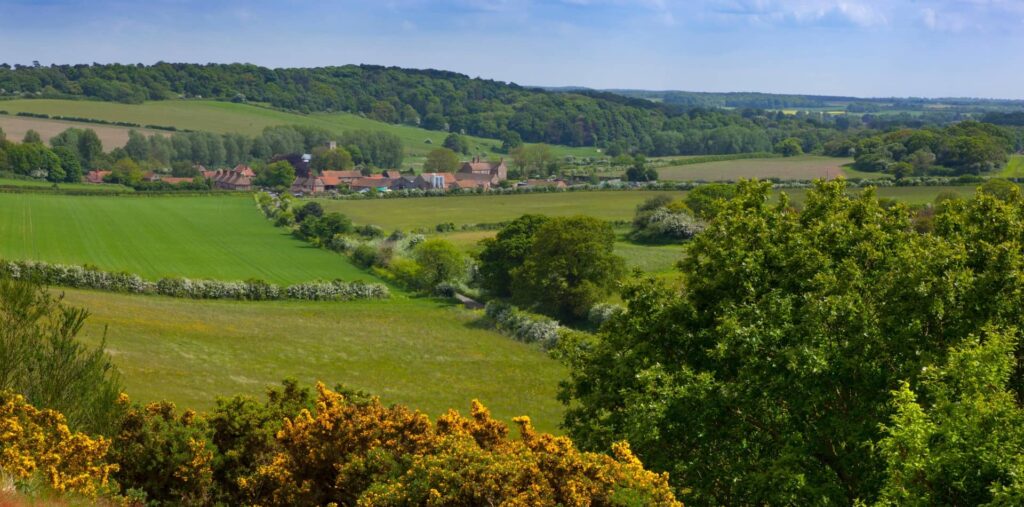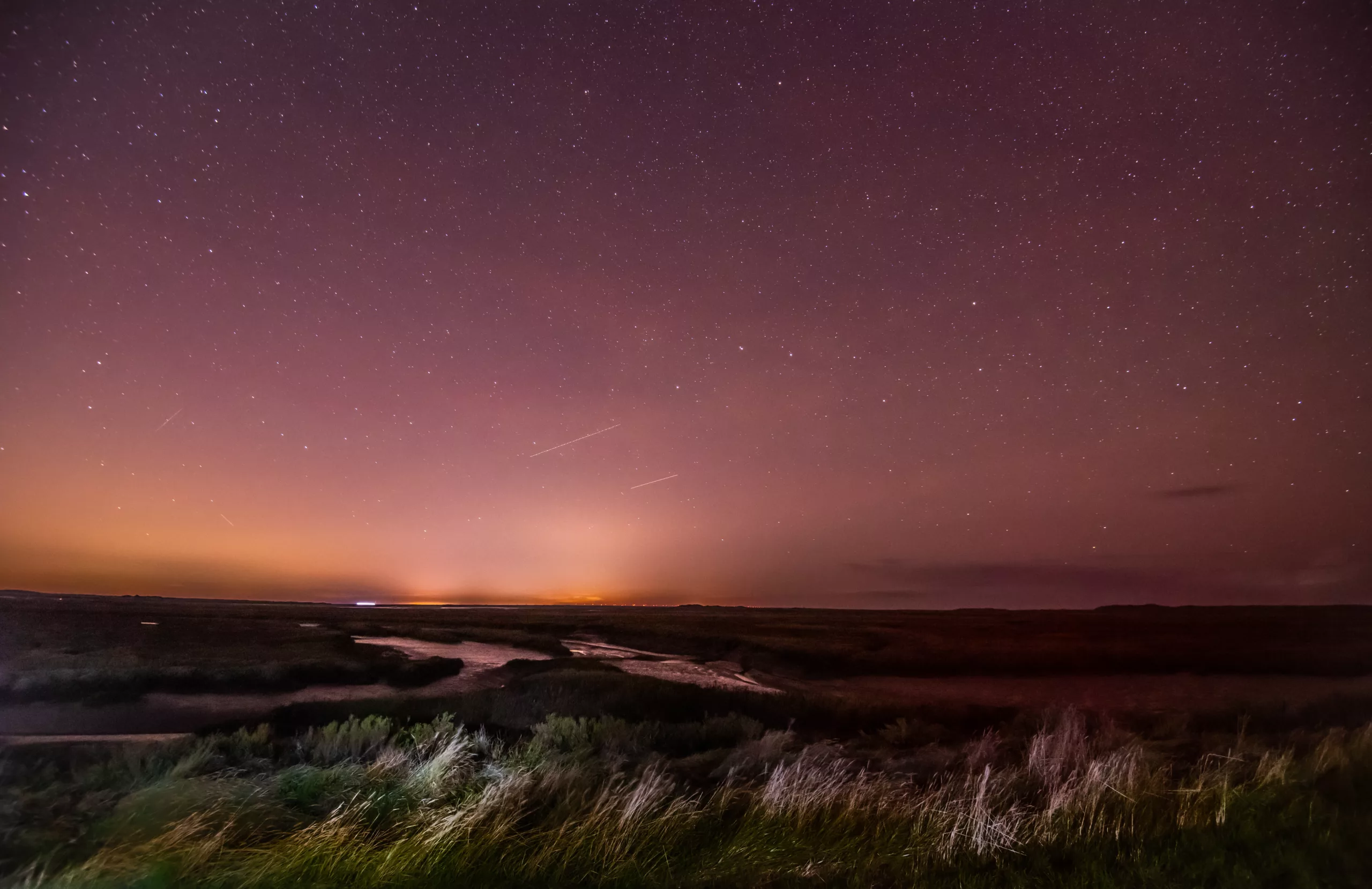
Dark Skies
Discover a landscape alive with nature
Dark Skies Festival 2025-26
Join us at our launch event as we kick off our festival season to celebrate and explore the incredible dark skies on our coast.
Dark Skies Festival 2024-25
Take part in our season of fun events this winter while learning more about the night sky.
Welcome to the dark side
The Norfolk coast’s wide open skies offer some of the clearest views of the stars in the country.
We’ve highlighted four of the best places to stargaze below, each offering a unique experience. On a cloudless night from Kelling Heath and Wiveton Downs, you can see the millions of stars that make up the Milky Way without using a telescope.
These locations are carefully protected from light pollution, which means all you need to do is step outside and look up to see planets and constellations that are light years away.
Some lucky stargazers might even get a glimpse of Aurora Borealis – the northern lights. The best time to visit is usually between 11pm and 3am, when the sky is darkest.
Nature at night
It’s easy to forget that wildlife has evolved to depend on and take advantage of natural darkness.
A night sky without artificial light is vital for healthy and productive ecosystems – so from beetles to bats, owls to otters – the nightlife on our Norfolk Coast is far from quiet.
Whether it’s feeding or hunting, nesting or navigating, these nocturnal creatures rely on the cover of darkness to go about their business.
Norfolk’s starry skies
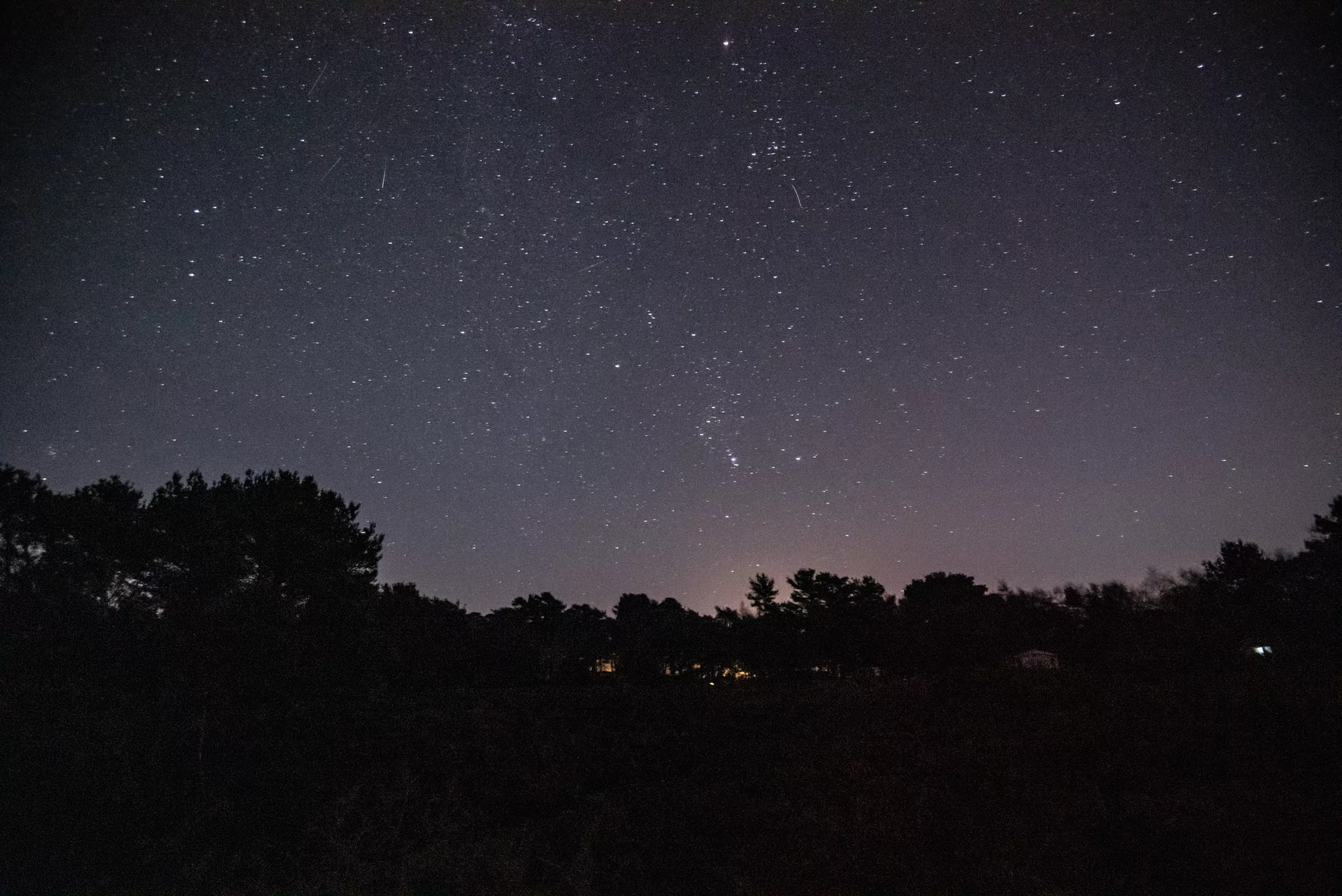
Kelling Heath
Nestled in the heart of North Norfolk away from light sources, Kelling Heath Holiday Park is located near Weybourne within the Norfolk Coast National Landscape. Two equinox star parties, popular with astronomers from around the UK, are held every year, with the September event thought to be the largest star party in Europe.
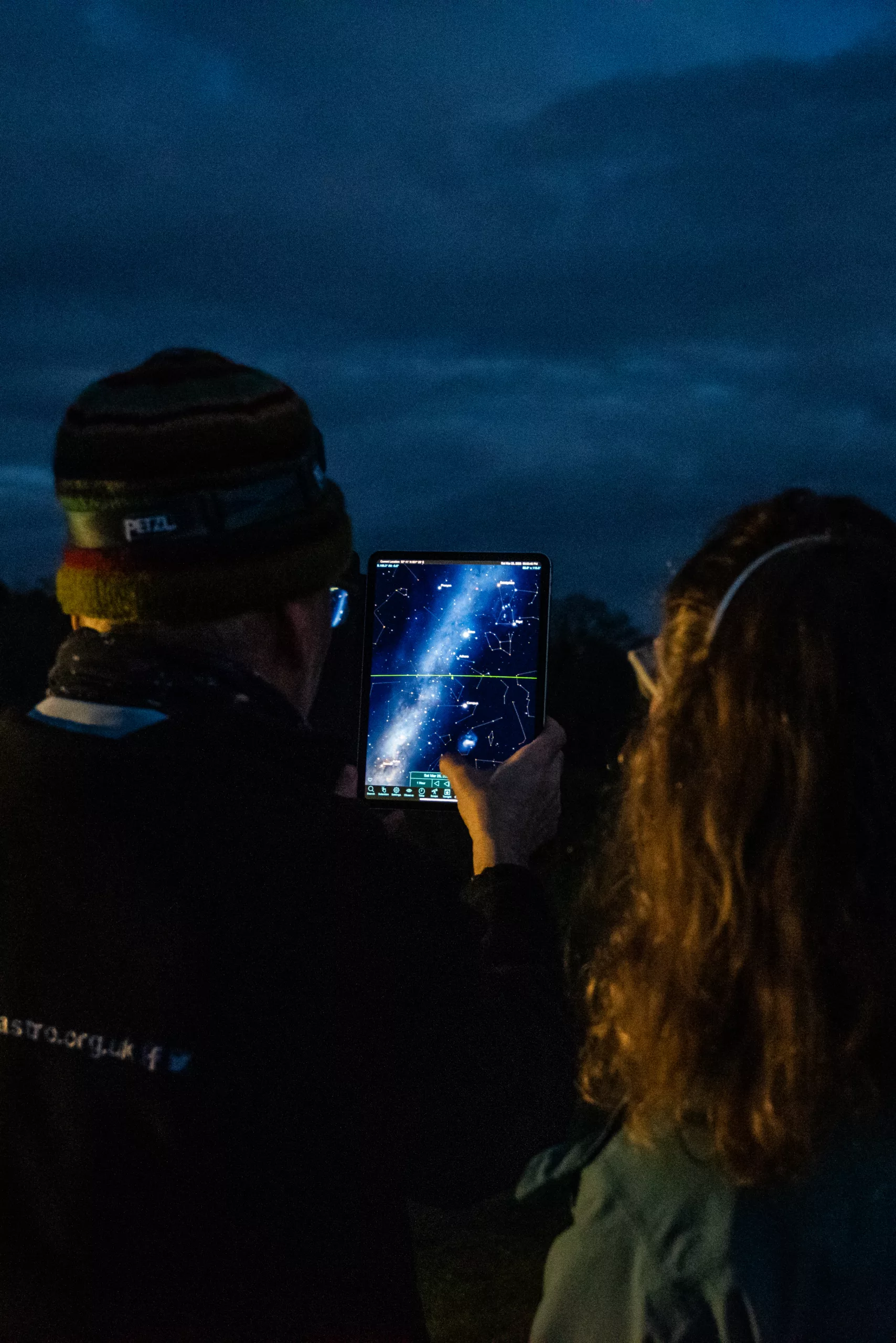
Barrow Common
Barrow Common is a remote, nature-rich wildlife site. This area of common land just south of Brancaster has no amenities other than a couple of off-road car-parking spaces perfect for stargazing. This very dark, elevated, heathland site has very good site lines and a spectacular 180° view of the north horizon.
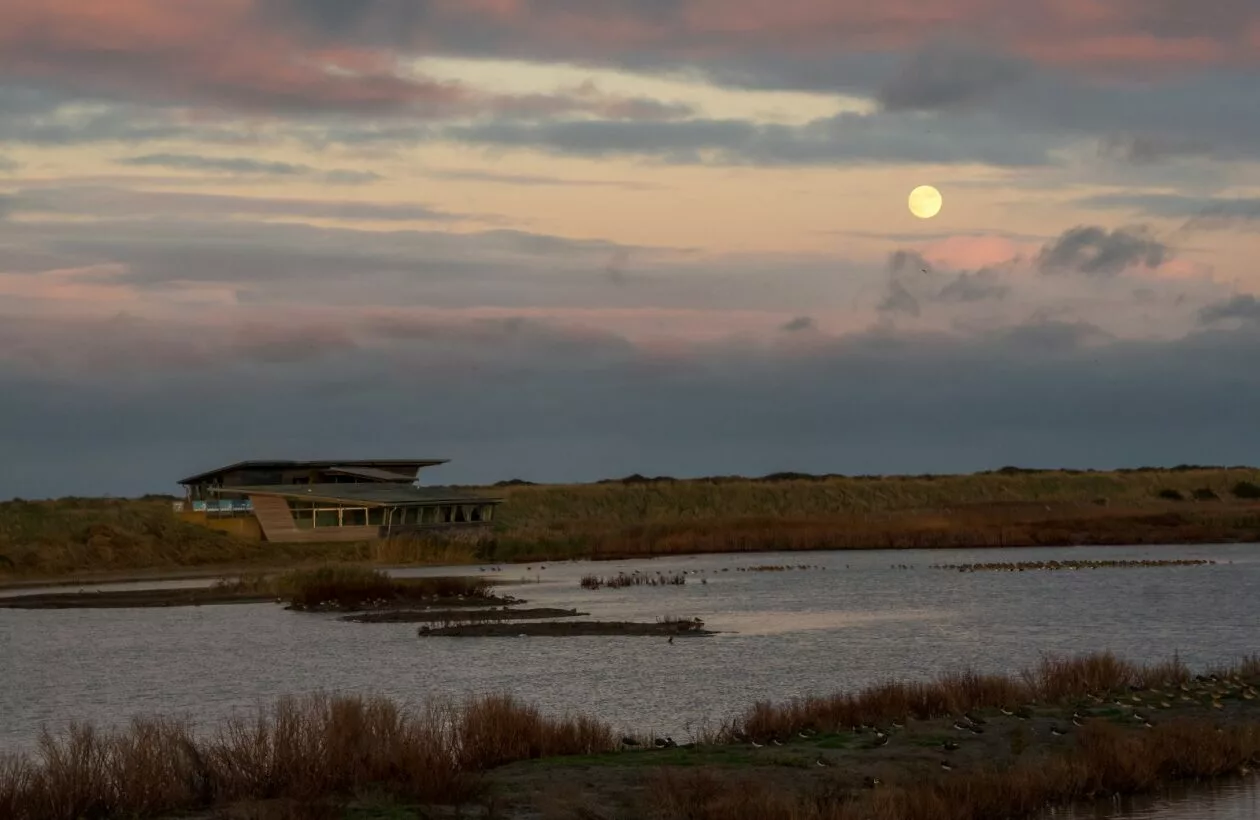
RSPB Titchwell
A magical place to enjoy some stargazing, RSPB Titchwell Marsh Nature Reserve is a very dark site on a raised embankment, surrounded by wetland habitat, with impressive 360° views of the horizon. There are regular evening sessions for the public to learn how to spot constellations, planets and much more.
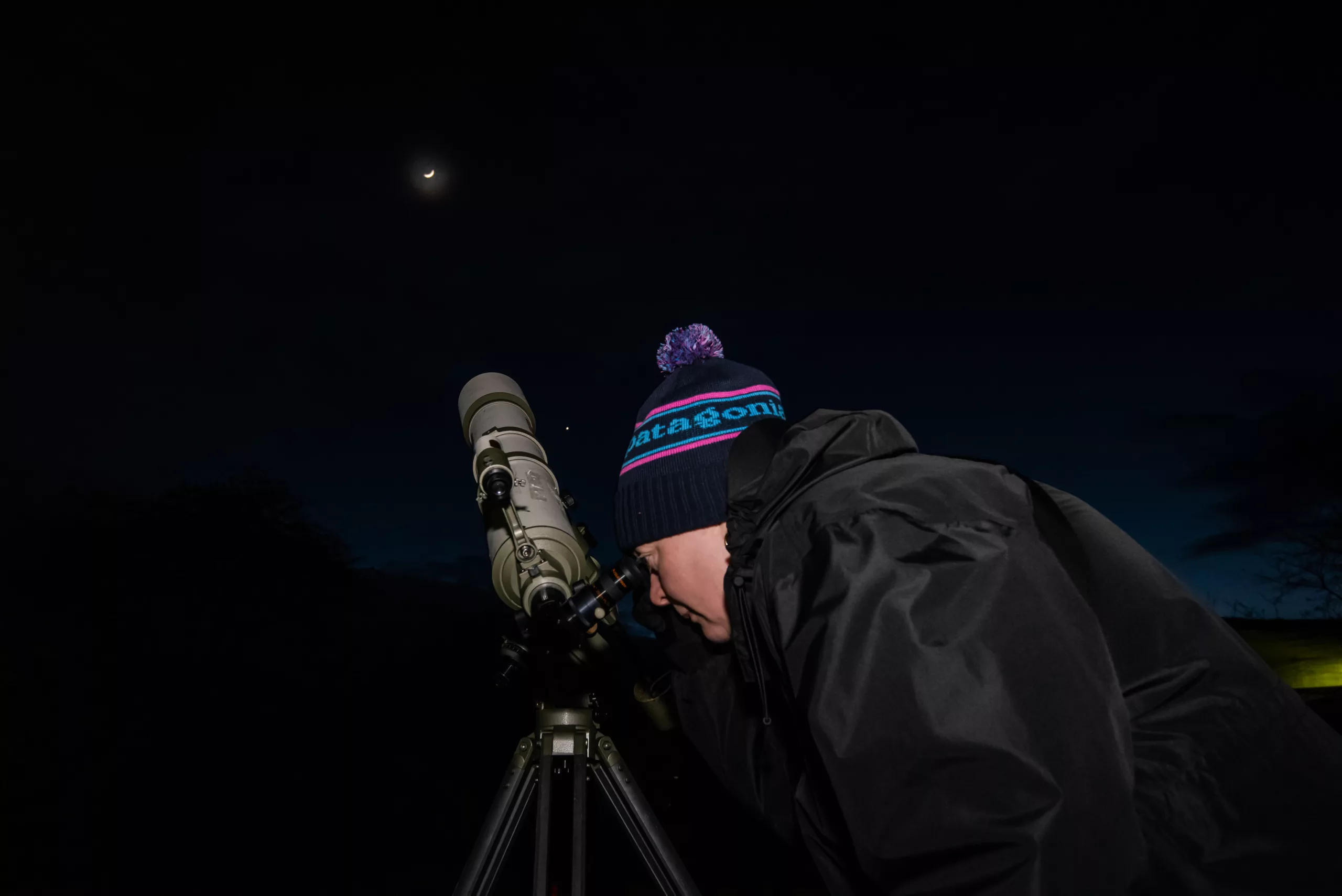
Wiveton Downs
Wiveton Downs car park has no facilities but boasts spectacular views of the brooding landscape that is also recognised as a Site of Special Scientific Interest. Sitting in an isolated location near Cley and Blakeney, this elevated heathland site is highly valued for its unique geology and offers very good sight lines in all directions.

Plan your travel
Make sustainable travel part of your Norfolk Coast experience.
Walking and cycling are great ways to explore the area. Keep it green by hopping on the bus, or let the train take the strain.
For help with planning your journey to and around the Norfolk Coast, visit Travel Norfolk.
Dark Skies Festival 2024-25
Take part in our season of fun events this winter while learning more about the night sky.
Welcome to the dark side
The Norfolk Coast is one of the best places in the UK to get a better look at the night sky, with four official Dark Sky Reserves to choose from. Kelling Heath and Wiveton Downs have a two star ‘darkness rating’, meaning you can see the millions of stars that make up the Milky Way without using a telescope.
These areas are carefully protected from light pollution, which means on a clear night all you need to do is step outside and look up to see planets and constellations from light years away.
Some lucky stargazers might even get a glimpse of Aurora Borealis – the northern lights. The best time to visit is usually between 11pm and 3am, when the sky is darkest.
Nature at night
It’s easy to forget that wildlife has evolved to depend on and take advantage of natural darkness.
A night sky without artificial light is vital for healthy and productive ecosystems – so from beetles to bats, owls to otters – the nightlife on our Norfolk Coast is far from quiet.
Whether it’s feeding or hunting, nesting or navigating, these nocturnal creatures rely on the cover of darkness to go about their business.
